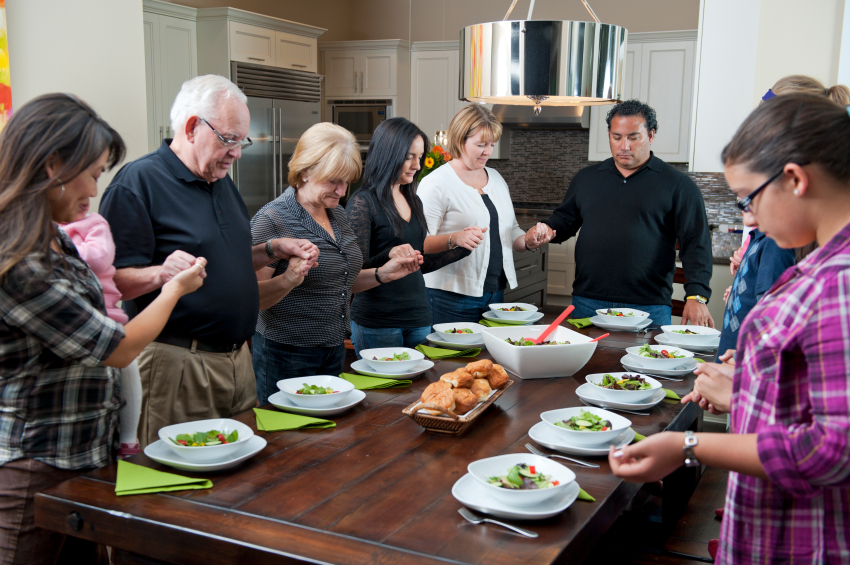Practicing Hospitality, Building Bridges, Making Friends
The debate about immigration policy continues to divide people of good will across our nation and our state. Immigration divides us, in part, because of both the breadth and the depth of the issues involved – from powerful global economics to fast-changing local cultures, from the complex world of international politics to family histories intricately woven across borders, from worldwide patterns of migration to the very heart of American identity.
What does it mean to be “American”? Are immigrants generally intruders to be feared or new neighbors to be welcomed? And what values should our immigration policies reflect? This debate, in part, is about who “they” are and who “we” are.
For You Were Once a Stranger: Immigration in the U.S. through the Lens of Faith
NC Council of Churches
Neighbors Together is a new pilot program aimed at taking the politics out of immigration and replacing it with relationships.
Our vision is that long-time residents and new North Carolina families will come to know God’s love and each other’s stories by sharing meals with each other over a four-month period. At the same time, local congregations will strengthen cross-cultural relationships. Everyone involved will learn to practice hospitality, build bridges, and make new friends.
 How Does It Work?
How Does It Work?
We’re looking for congregations who are willing to pair up to participate in this pilot. For example, one “Anglo” and one “Latino” church of the same denomination in the same city might be a pair. Or two different congregations that use the same building could participate. Or a group of immigrants or refugees could partner with people of different backgrounds within their own larger congregation. There are many possibilities for finding congregational pairs. Each congregation would then recruit two families to participate, so that each pair has a total of four families (or about eight adults). Each family would host one group meal in their home.
The program will last for about four months. One participant will be designated ahead of time to be the lead facilitator. This person can be a pastor but does not need to be. His/her family will host the first meal, where they will help set the tone for the whole experience. The next three months will continue monthly in-home meals. One church found that it works well to run the program one Friday night a month in September, October, November and January.
There is no formal program or agenda for participants. In other words, fellowship and hospitality are the program, and these threads of connection and friendship constitute the chief outcome of Neighbors Together. Through these friendships, community ties are strengthened between the people of different backgrounds which, in turn, provides a bulwark against intolerance and hatred.
Logistics
About the Meals
Meals will be celebrated in the style of the home, which means that no family should feel pressure to make anything other than a simple meal that they would normally enjoy together. Participants should also not feel pressure to make something they think others will like; instead, they should make something they enjoy. Every participant needs to be willing to graciously accept hospitality from others. (Note: alcohol should not be served.) If there are any dietary restrictions these will need to be shared at the first session.
About the “Language Barrier”
The language barrier is clearly one of the biggest obstacles for this program. To succeed, participants will need to find ways to be able to communicate with each other no matter which language they speak. There are no shortcuts around this challenge, but we are committed to working with you to find some creative solutions. For example, you could recruit groups that have at least one or two bilingual people who would volunteer to interpret at dinner gatherings. Sometimes children and youth are bilingual even if their parents are not, and they could be incorporated into the regular group dinners. You could also explore the possibility of recruiting a trained interpreter or someone else who is not affiliated with the group to volunteer their time to sit in and interpret.
Roles
NC Council of Churches will provide:
- Program packet for each participant (available in English and Spanish), including instructions, conversation starters, etc.;
- Background materials for each family who participates;
- “Technical support” and additional resources.
Participating churches will provide:
- Time for the pastors and lead facilitator to have at least one planning meeting with NC Council of Churches staff;
- Support for the program in their congregations;
- Publicity and help recruiting participants.
Lead facilitator will provide:
- Help coordinating dates for all meals;
- Timely reminders to all participants for upcoming meals;
- Hosting for the first home meal;
- Willingness to help spark conversation and to make sure that everyone’s voice is heard.
Participating families will provide:
- Welcome atmosphere in their home to host group;
- One meal for about 8 adults (plus children if applicable);
- Willingness to engage with people from different backgrounds;
- Spend one evening a month for 4 months to participate;
- Willingness to offer honest feedback and evaluation after participating to improve the program for the future.
Interested?
Right now the NC Council of Churches is looking for several partner congregations to participate in this pilot program over the winter. Do you think your congregation would be interested in participating?
If so please contact Chris Liu-Beers at the NC Council of Churches:
chris@nccouncilofchurches.org
919-828-6501

